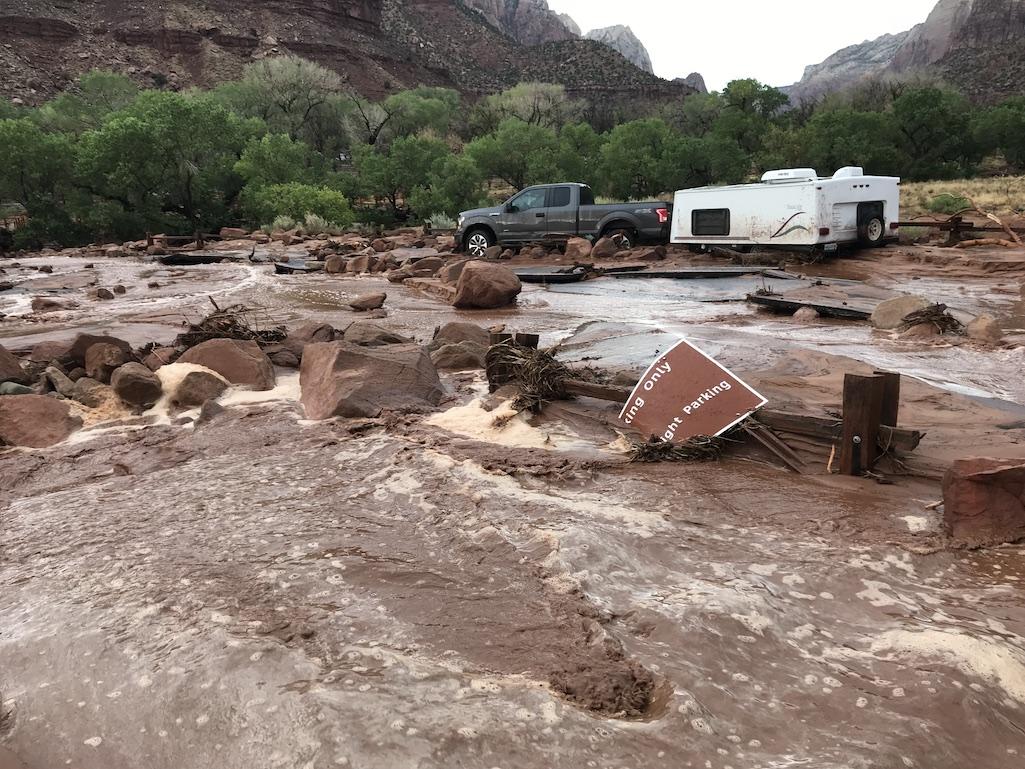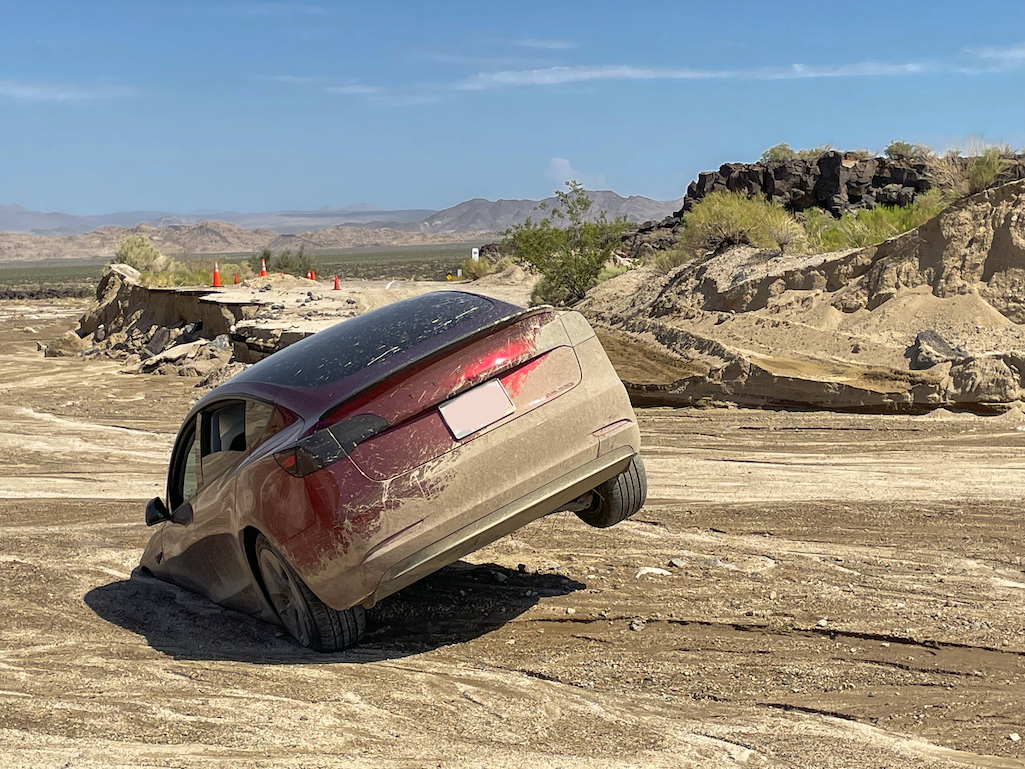
A handful of National Park System sites were on alert for flash flooding this weekend. This photo, from June 2021 in Zion National Park, shows the damage flash floods can quickly cause in the Southwest/NPS file
Editor's Note: This updates with a full closure of Joshua Tree National Park and Mojave National Preserve and a partial closure of Death Valley National Park, including the campgrounds, Furnace Creek Visitor Center, North Highway, and Badwater Road.
Flash flood watches stretched from Utah to California on Friday as a precaution against any flooding caused by Tropical Storm Hilary, and that threat prompted some park closures.
While Hilary grew into a Class 4 hurricane as it headed towards Southern California, it was expected to degrade into a tropical storm once it hits land. Still, the storm was expected to drench the Southwest with rain through the middle of next week.
Bryce Canyon, Capitol Reef and Zion national parks in Utah, along with Glen Canyon National Recreation Area, all were under a flash flood watch issued by the National Weather Service, as were Lake Mead National Recreation Area in Nevada and Death Valley National Park, Joshua Tree National Park, and Mojave National Preserve in California.
Some of the watches were to remain in place into Monday night, the weather service said.
Mojave National Preserve closed Friday afternoon due to Weather Service predictions of "major to historic flood impacts over the next few days...."
"The storm is expected to cause substantial debris flows and washing out of road shoulders in the preserve, making roadways dangerous and impassable," a release from the preserve said.
"Travel in the preserve and the surrounding region is definitely not advised during these tropical storm events," said Debra Hughson, the preserve's acting superintendent. "Debris-laden water can rise rapidly on area roads and can quickly become lethal."
Joshua Tree staff began closing areas of the park Friday, and were expected to fully close the park on Saturday, depending on weather conditions.
Death Valley officials also said that they would begin closing parts of the park Saturday. The forecast called for more than its annual rainfall, 2 inches, from the storm.
"This is predicted to cause major flooding. Flash floods are expected to damage, roads, likely making it impossible to get into or out of the park," a release said Friday afternoon. "The storm could cause a power outage. Telephone and internet connectivity may be unreliable."
Death Valley's campgrounds, the Furnace Creek Visitor Center, the North Highway, and the Badwater Road were to start closing Saturday, it added.
At Zion, park officials advised visitors not to enter slot canyons, as flash flood waters carry large debris like tree trunks and boulders. Back in September 2015, seven friends were killed by flood waters that raged through Keyhole Canyon in the park.
Late last summer a series of flash floods pounded Death Valley, tearing up water lines, eroding roads, partially burying vehicles in debris, and closing much of the park. Mojave National Preserve also was severely impacted by flooding last summer, with some motorists trapped when they ignored road closed signs. At Capitol Reef, while heavy thunderstorms can spur magnificent waterfalls, they also flood washes and vehicles parked in them.

This motorist ignored road closure signs at Mojave National Preserve last summer/NPS file
At Joshua Tree, officials warned visitors against driving Geology Tour Road because of the possibility of flooding.
Safety tips for visitors to pay attention to at Zion could apply to many other parks in the region:
- Check the weather forecast and stop by the visitor center for up to date information.
- Watch for changing weather and a buildup of clouds.
- Heed warnings.
- Be aware of areas that are likely to flood and avoid those areas.
- Have a plan in case you encounter a flash flood.
- Leave an itinerary with someone and check in when you are done.



Add comment